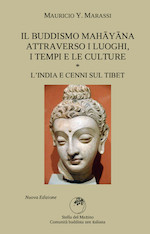
In October 1987, I left Antaiji, the Japanese monastery where I had spent several years of my life with two Italian brothers. Before flying back home, we took leave of the brothers, friends and acquaintances we had made during our stay in Japan. The most important of them
was Uchiyama Kōshō. It may be useful to recall that Uchiyama Kōshō at that time was close to 80 and had been Antaiji’s abbot until 1975. He had been Sawaki Kōdō’s main disciple and spiritual heir and had replaced him as abbot at Antaiji — Sawaki Kōdō being perhaps the most famous and most controversial Zen monk of the 19th century. Uchiyama had been the teacher of our own spiritual mentor, Watanabe Kōhō and both his life and his stance on Zen were already known worldwide. His books had made a very forceful defense of the “purist” school in Zen Buddhism that was embodied and was passed along in the Antaiji monastery. I don’t say this to flatter him or to brag about my own acquaintance with this great man. I just want to underline how huge was the gap between him and the three young anonymous Italians who had just completed their period of instruction at the monastery. I have a very strong and very clear recollection of what took place when we were about to leave. We had greeted each other on the threshold of his home -a very small building belonging to Nokein, a tiny temple on the outskirts of Uji- and had walked through the small garden towards the gate, when we turned for a last wave. When we did, we saw father Uchiyama in the porch, kneeling, his head touching the floor. If we had not turned we would not have seen this gesture. We would have never known. I was very impressed, almost shocked. I could not understand it and felt a keen sense of my own inadequacy, even of shame. The first thing that came to my mind was the enormity of this gesture from the point of view of etiquette. Japanese culture determines in every minute detail the expressions of deference appropriate for each social occasion. In the context of our relations, his behavior had been, to say the least, very odd. It had broken all social conventions. Later on, while no longer struck by the formal inappropriateness of this gesture, what affected me most was its intrinsic meaning, the meaning it had gained for me outside culture and social hierarchy.
Se volete, lasciate un commento.
You must be logged in to post a comment.







